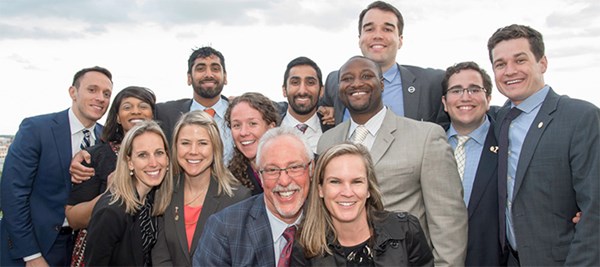We, as emergency physicians, have always been advocates. The emergency department stands at the front lines, ensuring care to our most vulnerable patients. We advocate for those vulnerable patients every day. Bit by bit, individual by individual, we advocate for a test, a treatment, a consult that will best serve our patient. But advocacy encompasses more than that – it asks how we can help not only our individual patients, but also our community and society on a broader scale. Katherine Neuhausen, a former Emory medical student, shared about her experience in her article, “Awakening Advocacy.”
In the fall of 2007, hundreds of students and resident physicians gathered at the Georgia state capitol. They were part of HealthSTAT, a group of student advocates fighting to save Grady Memorial Hospital. Grady was the nation's fifth largest public hospital, serving thousands of poor and uninsured in the Atlanta region. It provided almost 20% of the state's uncompensated hospital care. It was the place where hundreds of thousands of Atlanta residents turned for health care. But Grady was in trouble.
Grady had racked up losses of $48 million and was dangerously close to bankruptcy. It faced the loss of state funding, meager Medicaid reimbursement rates, and escalating numbers of uninsured patients. That fall, the students of HealthSTAT rallied around their state's largest safety net hospital. They gave voice to the patients Grady had helped to save. They told the story of Ms. Reed and Atlanta's working poor who relied on Grady for their care. They met with their legislators, wrote letters, testified at public hearings, and handed out postcards. Slowly, in meeting after meeting, and call after call, they mobilized a community.
By the end of their campaign, Grady emerged as a nonprofit hospital whose financial security was looking bright. Both locally and statewide, the students' voice played a vital role in ensuring Grady's survival for the patients of Atlanta who depended on it.
Like the students of HealthSTAT, we too have the chance to give voice to the patients who count on us. Today, shifting health reform policies stand to dramatically affect how we care for our patients in the emergency department. As the next generation of emergency medicine providers, it is vital to speak up and take action on the issues that matter to us and our patients in this changing health care system. The ACEP Leadership and Advocacy Conference is a great way to jump in. This year, the 4-day conference takes place in Washington, D.C., March 12-15. More than 500 physicians gather at this exciting conference to learn, educate, and take action. Day 1 kicks off with a health policy primer and an overview of concepts including GME funding, mental health, the ACA, and MACRA. Day 2 takes a deeper dive into the core issues in preparation for Day 3 – ACEP's Lobby Day on Capitol Hill. The last day of the conference offers leadership training for CME credit. Hope to see you there!



